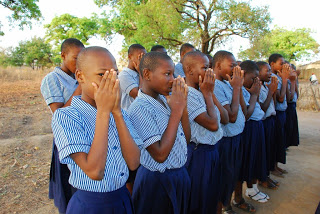By
Charles Ayitey
Religion, Education and Ghana: From Colonial to the Independence Era
Upon the introduction of colonial rule in Africa, colonies, now independent states, are documented to have been left with particular legacies, at the forefront of which has been religion, along the lines of Christianity or Islamism.
In as much as some states, especially those in the horn of Africa (Morocco, Libya et al) ended up exclusively Islamic, post-colonial economies like Ghana experienced a mixture of both denominations adding to the already established traditional system of worship.
Ghana’s traditional system from the 18th Century is thus documented to have, to a great extent, drowned in the colonial-religious establishment, with the formation of mission schools being a typical example.
Missionary education, which saw pupils of Mfanstipim, Wesley Girls, Adisadel College et al trained for primarily clerical duties, saw a marginal curricula transformation in the independence and post-independence era starting under Dr Kwame Nkrumah’s regime and educational structure in the 1960s.
But despite this transition mission schools especially Catholic and Islamic to some extent hold up their earlier centre piece, “training under a religious theme”.
Diversity, Religion and Public Education: a Case of Equality in the 1992 Constitution
Ghana’s educational system, after the preparation of the 1992 constitution, had an open door system of training despite the nation’s rich religious background. This was due to the diversity of practice emanated from the growth of the state’s democratic system.
Today, it is feared that this practice is dented by experienced cases of dispute especially in public schools. Students, especially those of the Islamic faith are on a daily basis faced with pockets of repulsion just on the basis of their religious denomination. A case in point being the outburst by members of the Islamic Movement in Ghana who flunked the media over what they termed as discriminatory acts against their enshrined right to fully practice their religion.
Religious disputes are feared to have engulfed most if not all public schools as students with strict religious faith are admitted into schools on the condition of “leaving their religion at home” if they must be fully accepted in which ever school they are admitted to.
In a special feature on Joy News earlier this month, student of Islamic background, Martha Koomson was heard sharing her side of the story stating that her school, situated in the halls of Accra, does not permit her to conduct her prayers as “prayer camps just don’t exist for me to pray” she recounted.
Koomson’s ordeal, tied up in several accounts, in particular the recent prevention of three girls from wearing a Hijab to write their final exams, is among other developments typical of the encroachment of the right to equality as stipulated in article 17 clauses 1 and 2 respectively of the constitution which states that all persons shall be equal before the law [17. (1)] and that a person shall not be discriminated against on grounds of gender, race, colour, ethnic origin, religion, creed or socio-economic status.
The thematic area of discrimination laced up in these clauses can thus be described under the 1992 constitution as giving different treatment to different persons attributable only or mainly to their respective descriptions by religion or creed so that persons of one description are subjected to disabilities or restrictions to which persons of another description, which are not granted of persons of another description, are not made subject or are granted privileges or advantages which are not granted to persons of another description.
A Look into the Future; Solutions to the Status Quo
Having laid the foundation to this phenomenon, specific pointers can be proffered on how best the controversy of religious intolerance can be solved.
To start with, legal impulsions on the right to equality can best be re-enforced. So long as educational institutions are researched to play a pivotal role on the socialisation of citizens, the very structure of their make-up, which is to morally and academically train students, must not scrap off in-built traditions of students so long as they do not remain obstructions to law and order. This can best be achieved through the effecting of specific legislative instruments in the house of parliament.
With a careful assessment of the status quo (religious prayer) it can be deduced that discrimination against religious students is closely entwined to social stereotypes and in-built perceptions. According to research by the Telegraph, persons with Islamic faiths are often thought to be terrorists, peace detractors and deviants in society following global security threats and insurgencies fuelled by the USA, Northern Nigeria and elsewhere.
Ghana is no exception as students with various faiths such as Buddhism, Hinduism, Islamism et al are perceived as either occultist, detractive or rebellious of society, leaving behind Christianity factually due to the fact that 60% of Ghana’s population are documented Christians. Improved civic education, through the National Commission for Civic Education can best aid the reconstruction of this in-built social construct.
The expansion of Ghana’s educational sector to suit the mandate enshrined in article 17 of the constitution would have to be revisited as an exclusive interview with the Education Minister, Professor Jane Nana Pokuwaa by Radio Gold proposes that all public schools must open up for students of all faiths to worship.
Since Ghana remains a secular state, the 1992 constitution makes it a priority for equal rights hence schools reconsidered the move to open up spacious grounds for students to worship.
Conclusion
Be as it may, ‘religious prayer’, if suppressed in public schools, can potentially heighten emotions and also raise suspicious questions as encapsulated in the words of Former GNPC head, Charles Wireko Brobbey who, in the reaction to all recent debate, intimated:
“Where has the recent breakout of religious intolerance from Ghana’s Catholics and Christians come from? Unfortunately, it is not new, but rather a culmination of intolerance which has come as a by-product of creeping Christian Fundamentalism in Ghana.”



No Comments Yet!
You can be first to comment this post!